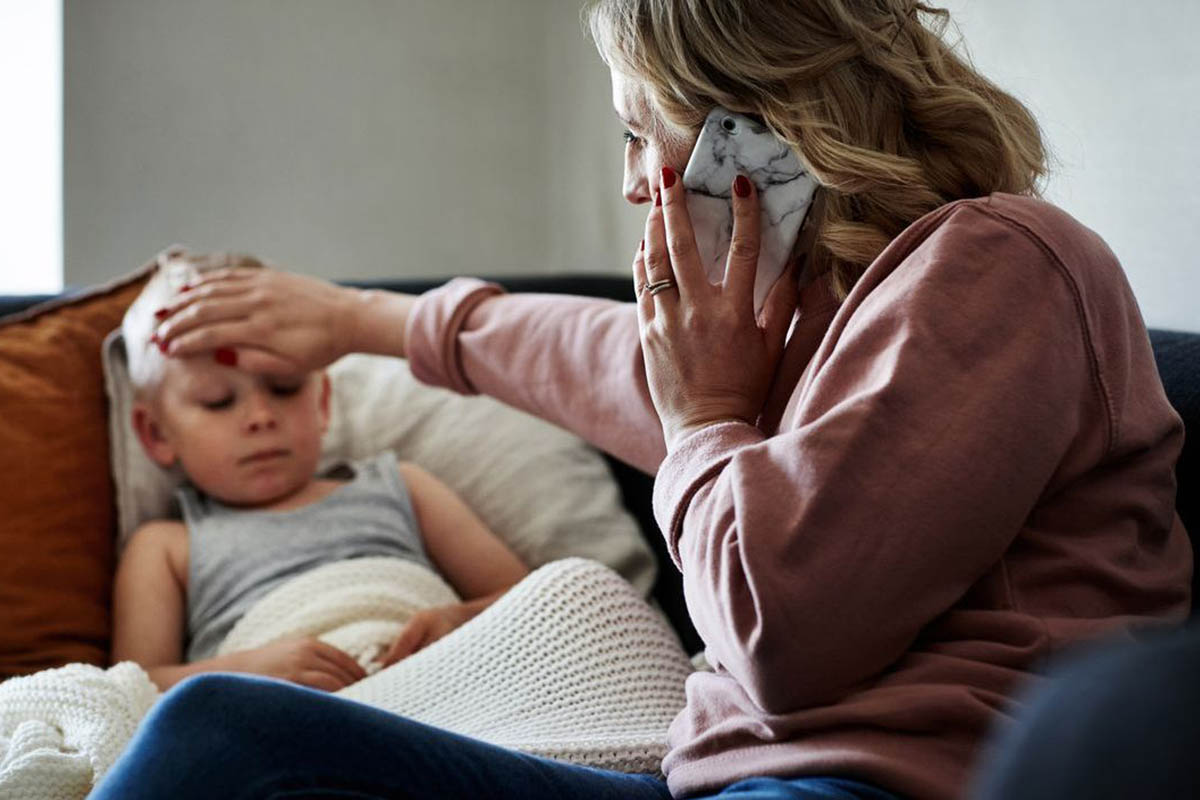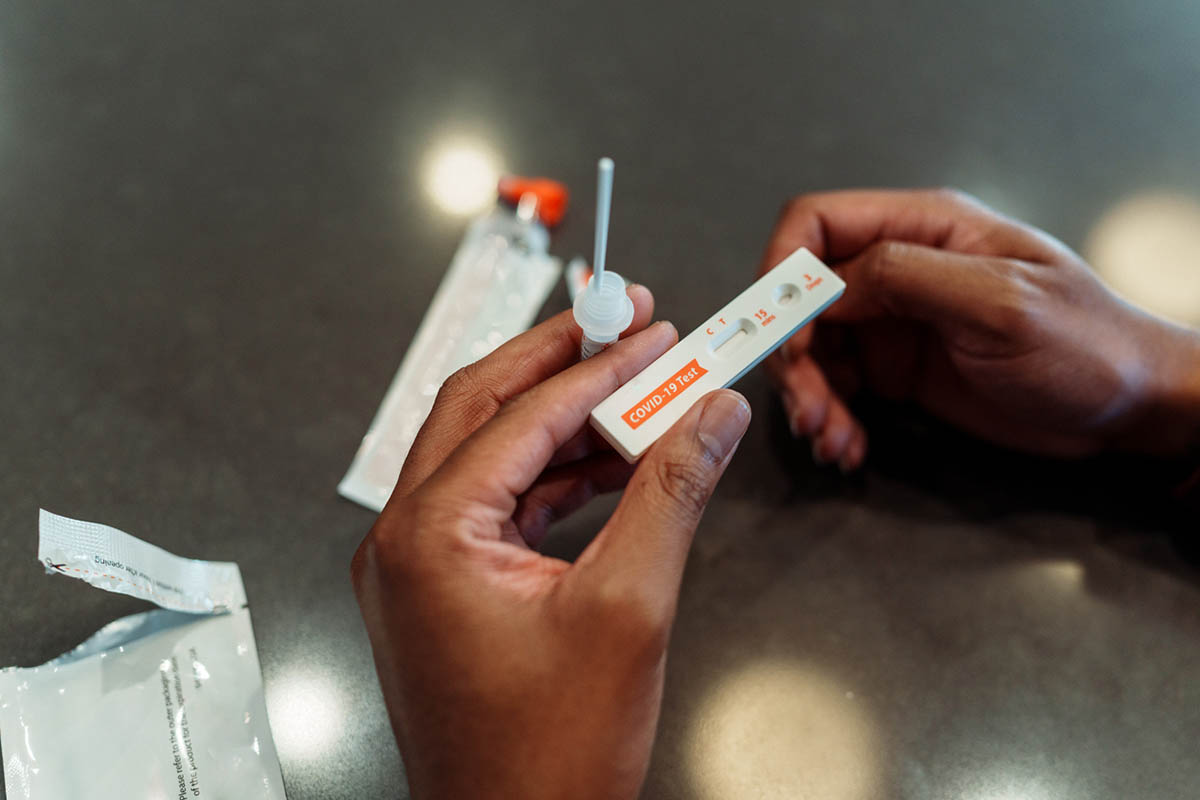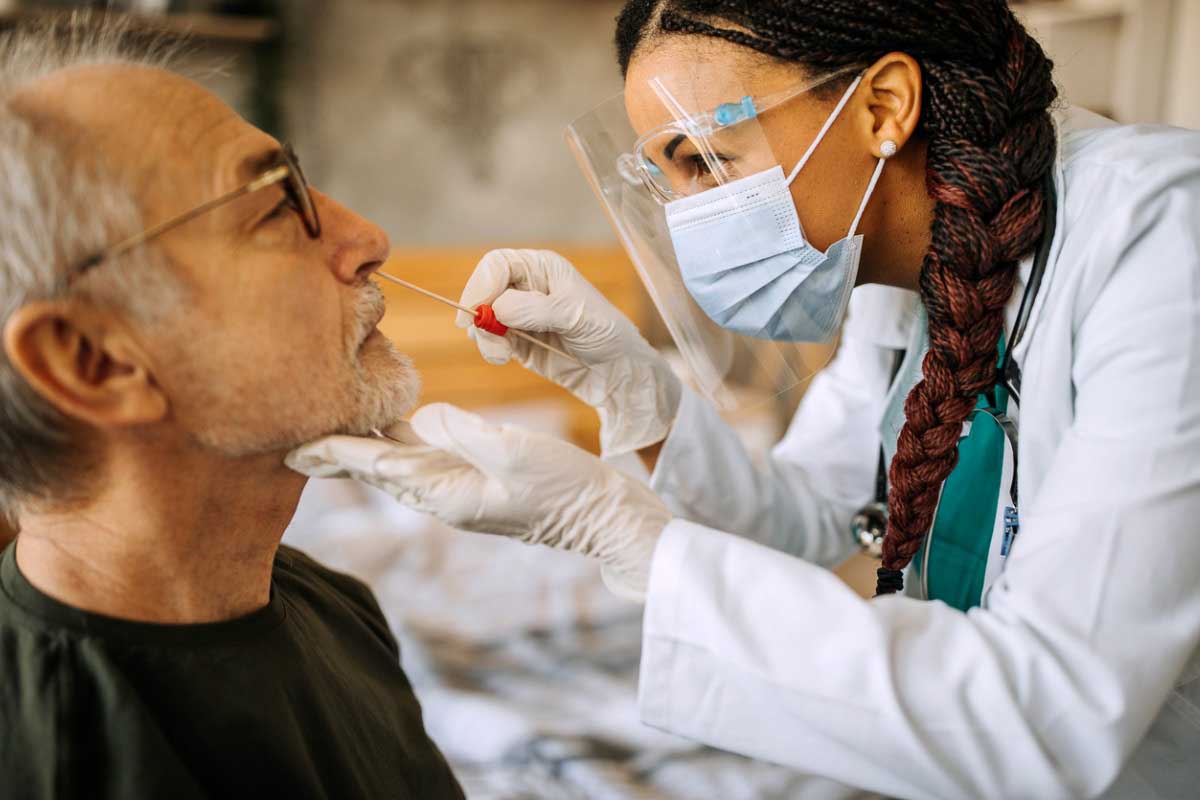
Prim Care Companion CNS Disord 2022;24(1):21cr03215
To cite: Uvais NA. New-onset panic disorder following Pfizer-BioNTech COVID-19 vaccination. Prim Care Companion CNS Disord. 2022;24(1):21cr03215.
To share: https://doi.org/10.4088/PCC.21cr03215
© Copyright 2022 Physicians Postgraduate Press, Inc.
aDepartment of Psychiatry, Iqraa International Hospital and Research Centre, Calicut, Kerala, India
*Corresponding author: N. A. Uvais, MBBS, DPM, Iqraa International Hospital and Research Centre, Malaparamba, Calicut, Kerala 673009, India ([email protected]).
Coronavirus disease 2019 (COVID-19) infection is a contagious respiratory illness with significantly higher morbidity and mortality compared to other viral respiratory illnesses.1 There are vaccines currently available, mainly to reduce the risk of the severity of COVID-19 infection. However, various adverse effects have been reported following COVID-19 vaccination.2 The major adverse events reported following Pfizer-BioNTech COVID-19 vaccination include pain, redness, and swelling at the injection site; fatigue; headache; muscle pain; lymphadenopathy; fever; appendicitis; acute myocardial infarction; cerebrovascular accident; and allergic reactions including anaphylaxis.3 There are not many reports of psychiatric disorders following COVID-19 vaccination in the literature.4,5 Here, a case of a middle-aged man who presented with panic disorder following the second dose of COVID-19 vaccine is reported.
Case Report
A 48-year-old married Indian man working in the Middle East for 13 years received a second dose of Pfizer-BioNTech COVID-19 vaccine on July 7, 2021. There were no immediate adverse events after taking the vaccine, and he continued his heavy manual work on that day. The following morning, he developed palpitation, tightness of chest, and restlessness, which lasted for around 10–20 minutes. It was also associated with dryness of mouth, body trembling, sweating, and feeling of impending doom. He had similar episodes in the following days. Gradually, he developed fear of death, fear of being alone, fear of going crazy, and significant loss of sleep. There were no symptoms of fever, body pain, or pain at the injection site or any allergic reactions. There was no history of psychiatric illness. There was family history of generalized anxiety disorder in his mother, who was on regular psychotropic medications. He also denied any vaccine-related fear before taking the second dose. He consulted a medical doctor for these symptoms. Medical evaluation and investigations including routine blood tests, chest x-ray, and electrocardiography revealed no abnormalities except for elevated blood pressure. He was diagnosed with panic disorder, and oral sertraline 50 mg/d was started along with antihypertensive medications, and he was asked to consult a psychiatrist for proper evaluation and optimization of the medication.
Due to the unavailability of a psychiatrist near his job, he could not follow the medical advice. He continued the medications for 2 weeks and had significant relief in his panic symptoms. He again became symptomatic after 1 month following the death of his father-in-law. Considering significant symptoms and absence of professional support, he resigned from his job and returned to India. He presented to the outpatient department of our hospital within 1 week of reaching India with complaints of palpitation, worries, fear of going crazy, and significant impairment in sleep. His mental status examination showed anxious affect. He was started on oral sertraline 50 mg/d and oral clonazepam 3.75 mg/d. He reported significant improvement in symptoms during follow-up after 2 weeks.
Discussion
This patient experienced new-onset panic disorder within a day after receiving the second dose of the Pfizer-BioNTech COVID-19 vaccine. In the absence of other life stressors or fear of vaccination, we could assume that panic disorder in this patient was caused directly by the vaccine itself. There are no reports, to my knowledge, of panic disorder following Pfizer-BioNTech COVID-19 vaccination in the literature. A recent study6 reported 64 anxiety-related events from 5 mass vaccination sites in the US following Janssen COVID-19 vaccination. However, there are significant gaps in our understanding of psychological morbidities following COVID-19 vaccination, as large-scale well-conducted studies have yet to take place.
The mechanism of panic disorder following Pfizer-BioNTech COVID-19 vaccination is not yet known. However, the most probable explanation for new-onset panic disorder in this patient could be the immunologic changes following the vaccination. The Pfizer-BioNTech COVID-19 vaccine produces spike-specific IgG antibody production, significant humoral and T-cell responses, and polyspecific cellular immune response.7 The pathophysiology of panic disorder also involves immunologic factors, especially proinflammatory cytokines and modulation of T-lymphocytes.8 Hence, the immunologic response of the Pfizer-BioNTech COVID-19 vaccine may have triggered panic disorder in this patient.
This is the first report, at the time of this writing, of new-onset panic disorder following Pfizer-BioNTech COVID-19 vaccination. However, considering the relatively higher prevalence of anxiety disorders in the population, it would not be scientifically correct to attribute causal association between panic disorder and vaccination from a single report. But, there is a need to systematically explore COVID-19 vaccine–related psychological adverse effects, as the number of individuals receiving the vaccine is increasing daily, and lack of data on such an important adverse event might cause speculation and vaccine hesitancy. This report should not discourage people from receiving COVID-19 vaccination, as the benefits of vaccination outweigh the rare risk of panic disorder. Health care workers should be aware of such rare adverse events following COVID-19 vaccination so that they can properly guide individuals with vaccine-related adverse events for proper management.
Received: December 10, 2021.
Published online: February 17, 2022.
Potential conflicts of interest: None.
Funding/support: None.
Patient consent: Consent was received from the patient to publish the case report, and information has been de-identified to protect anonymity.
References (8)

- Piroth L, Cottenet J, Mariet AS, et al. Comparison of the characteristics, morbidity, and mortality of COVID-19 and seasonal influenza: a nationwide, population-based retrospective cohort study. Lancet Respir Med. 2021;9(3):251–259. PubMed CrossRef
- Pormohammad A, Zarei M, Ghorbani S, et al. Efficacy and safety of COVID-19 vaccines: a systematic review and meta-analysis of randomized clinical trials. Vaccines (Basel). 2021;9(5):467. PubMed CrossRef
- Im JH, Kim E, Lee E, et al. Adverse events with the Pfizer-BioNTech COVID-19 vaccine among Korean healthcare workers. Yonsei Med J. 2021;62(12):1162–1168. PubMed CrossRef
- Uvais NA. Depression following ChAdOx1-S/nCoV-19 vaccine. Eur J Psychiatry. 2021. PubMed CrossRef
- Reinfeld S, Cáceda R, Gil R, et al. Can new onset psychosis occur after mRNA based COVID-19 vaccine administration? a case report. Psychiatry Res. 2021;304:114165. PubMed CrossRef
- Hause AM, Gee J, Johnson T, et al. Anxiety-related adverse event clusters after Janssen COVID-19 vaccination: five US mass vaccination sites, April 2021. MMWR Morb Mortal Wkly Rep. 2021;70(18):685–688. PubMed CrossRef
- Tiyo BT, Schmitz GJH, Ortega MM, et al. What happens to the immune system after vaccination or recovery from COVID-19? Life (Basel). 2021;11(11):1152. PubMed CrossRef
- Kim HJ, Jeon SW, Yoon HK. Recurrence of panic attacks after influenza vaccination: two case reports. Clin Psychopharmacol Neurosci. 2016;14(4):396–398. PubMed CrossRef
Enjoy this premium PDF as part of your membership benefits!





